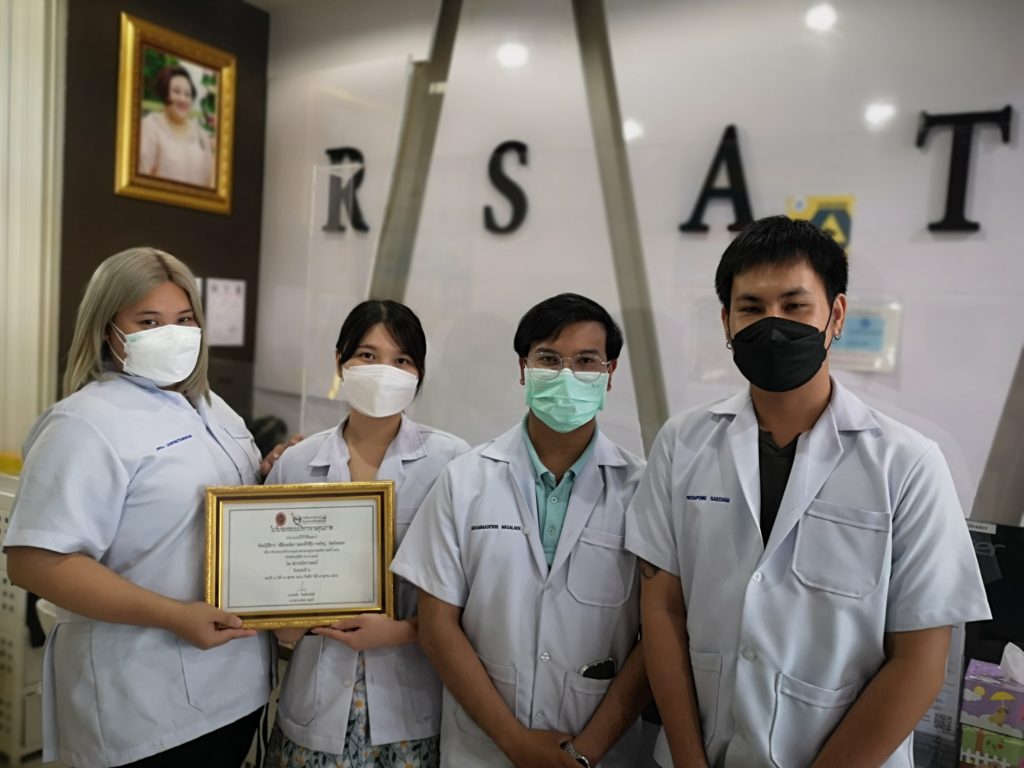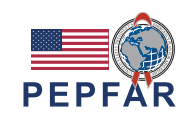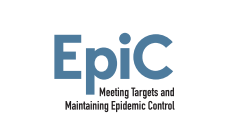
In Thailand, medical laboratory diagnostic services including human immunodeficiency virus (HIV) and sexually transmitted infection (STI) tests can only be performed and reported by a Medical Technologist (MT) with licensing from the Thailand Medical Technology Council. Health facilities that do not have a MT are not allowed to offer HIV and STI diagnostic services and this has included many Community Based Organizations (CBOs). To address this, U.S. President’s Emergency Plan for AIDS Relief (PEPFAR) through U.S. Agency for International Development (USAID) funded the related Linkages across the Continuum of HIV Services for Key Populations Affected by HIV (LINKAGES) Thailand project and subsequent Meeting Targets and Maintaining Epidemic Control (EpiC) project. The main mission of PEPFAR through LINKAGES and EpiC is to prevent millions of HIV infections, and accelerate progress toward controlling the global HIV/AIDS epidemic. To achieve related goals in Thailand, both LINKAGES and EpiC supported colleagues have been working closely with CBOs to provide HIV and STI diagnostic services through capacitating community-level lay-providers under the key population-led health services (KPLHS) model. To provide services that meet good laboratory standards, the CBO laboratories have been strengthening both health providers’ laboratory skills and quality management systems.
Related work has also included providing needed equipment, reagents, and supplies. The aim of this support was to enable the CBOs to become registered as Medical Technology Clinics and have licensed MTs working at their health facilities so that they could offer high quality laboratory diagnostic services for HIV and STIs that comply with national laws and regulations.
To achieve these results we worked with CBOs, namely, Caremat, Mplus Foundation, Rainbow Sky Association of Thailand (RSAT), Sisters Foundation, and Service Working in Group (SWING) Foundation. This work was also conducted in conjunction with technical assistance organizations including the Thailand Red Cross for AIDS Research Centre (TRCARC), the Prevention Unit of TRCARC (now the Institute of HIV Research and Innovation (IHRI), and Thailand medical governing bodies including the Thailand Medical Technology Council. Through these collaborative efforts, the following were accomplished:
- Provided a series of trainings to CBO laboratory staff including Good Clinical Laboratory Practice (GCLP), Laboratory Quality Management System, and HIV Same Day Diagnostic & Laboratory Safety Training;
- Developed CBO specific laboratory quality documents that complied with the Thailand Medical Technology Council standards;
- Conducted a series of laboratory and safety assessments using the assessment tool/checklist from the Thailand Medical Technology Council; and
- Provided continuous technical assistance and support for continual quality improvement.
Through this progressive laboratory improvement and twinning program, RSAT Songkhla became the first CBO to be registered as a Medical Technology Clinic and accredited by the Thailand Medical Technology Council since October 2017. This was the beginning of many such CBO clinics achieving their clinic registration and laboratory accreditation. Between 2017-2022, LINKAGES/EpiC Thailand projects supported a total of 11 CBOs across Thailand’s regions (one in Songkhla, two in Bangkok, two in Chiang Mai, one in Chiang Rai, three in Chonburi, one in Phitsanulok, and one in Ubon Ratchathani) to become registered as Medical Technology Clinics and 10 of the 11 clinics have been accredited by the Thailand Medical Technology Council to provide good quality laboratory services for the diagnosis of HIV and STIs. The 11th clinic is in the process of receiving laboratory accreditation. This means that these CBOs are providing the same high standard diagnostic services as other private and government laboratory settings. By achieving this legal status, the accredited CBOs’ KPHLS clinics can become a registered HIV and STI laboratory service for the national HIV program under the Thailand National Health Security Office (NHSO). This also enables them to receive direct domestic funding and demonstrates a true partnership between CBOs and government/public health facilities for the sustainability of the KPHLS model and affording viable community-based HIV and STI services for KPs in Thailand.
This work was made possible by the generous support of the American people through the United States Agency for International Development (USAID) and the U.S. President’s Emergency Plan for AIDS Relief (PEPFAR). The contents are the responsibility of the EpiC project and do not necessarily reflect the views of USAID, PEPFAR, or the United States Government. EpiC is a global cooperative agreement (7200AA19CA00002) led by FHI 360 with core partners Right to Care, Palladium International, and Population Services International (PSI).



